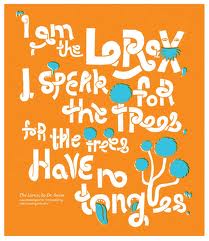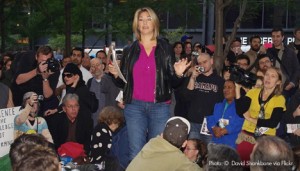By wogwpa1358 on October 24, 2011 / Featured Post, Leadership
Tags:
Leymah Gbowee,
Lisa Witter,
Pray the Devil Back to Hell,
President Ellen Johnson Sirleaf,
Wangari Maathai,
women of green,
women's empowerment,
women's issues,
women's leadership,
womens rights,
Yemeni Tawakkul Karman

Lisa Witter, Chief Strategy Officer of Fenton and co-author of The She Spot: Why Women are the Market for Changing the World – And How to Reach Them.
The last few weeks we have experienced joy and sorrow for new and old Nobel Peace Prize winners — the death of the first African woman winner, Wangari Maathai, as well as the 2011 Nobel Peace Prize awarded to Liberian President Ellen Johnson Sirleaf, Liberian peace activist Leymah Gbowee, and Yemeni democratic activist Tawakkul Karman for their work on women’s rights.
This group shares a number of obvious attributes: strength, leadership, risk taking and vision. Another that may not be so obvious is how fun they all are or were, and how fun may have impacted the resilience of those movements.
I have had the privilege of spending personal time with two of them — Ms. Maathi when she was in Oslo to receive her prize and with Ms. Gbowee through the last few years as she toured the U.S. telling her story of Liberian peace in the award-winning film Pray the Devil Back to Hell. I can say that they both have fierce eyes of kindness and were often funny, with larger-than-life smiles.
Fun is often thought of as superfluous, extra, something to get to when you have time and a tool not to be used in serious situations. In fact, we have sayings to reinforce this notion: “this is no laughing matter” or “serious times call for serious solutions.” But fun can be, and has been, a powerful tool for transformation when tapped appropriately, as our past and recent Nobel-Prize-winning women demonstrate.
Environmental activist Maathi and her Green Belt Movement mobilized community consciousness using tree planting as an entry point for self-determination, equity, improved livelihoods and security, and environmental conservation. As she planted trees, she worked hard but never forgot to smile or create a chorus of song with her colleagues.
While being the first African woman to win the Prize, she was not the only Nobel winner to tap the fun factor in her organizing; Leymah Gbowee did, as well. It is not often you experience what feels like a real-time, front-row seat to a Nobel Peace Prize act like you do in Pray the Devil Back to Hell. The film, released this week on PBS, chronicles Liberian women’s struggle for peace, shows the fierce organizing ability of Nobel winner Leymah Gbowee, and highlights the political skills of the first woman African President, Ellen Johnson Sirleaf.
Continue reading... →








